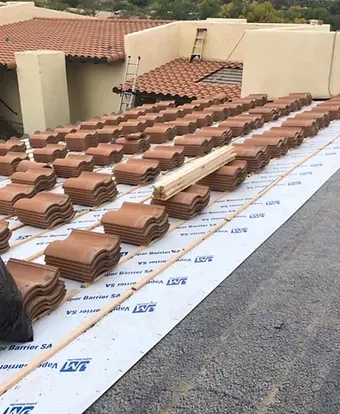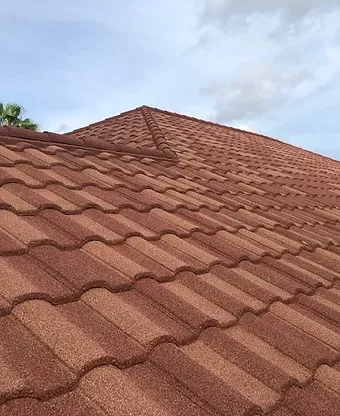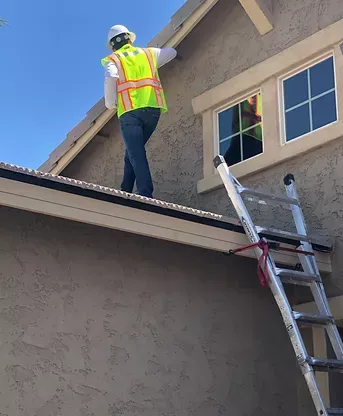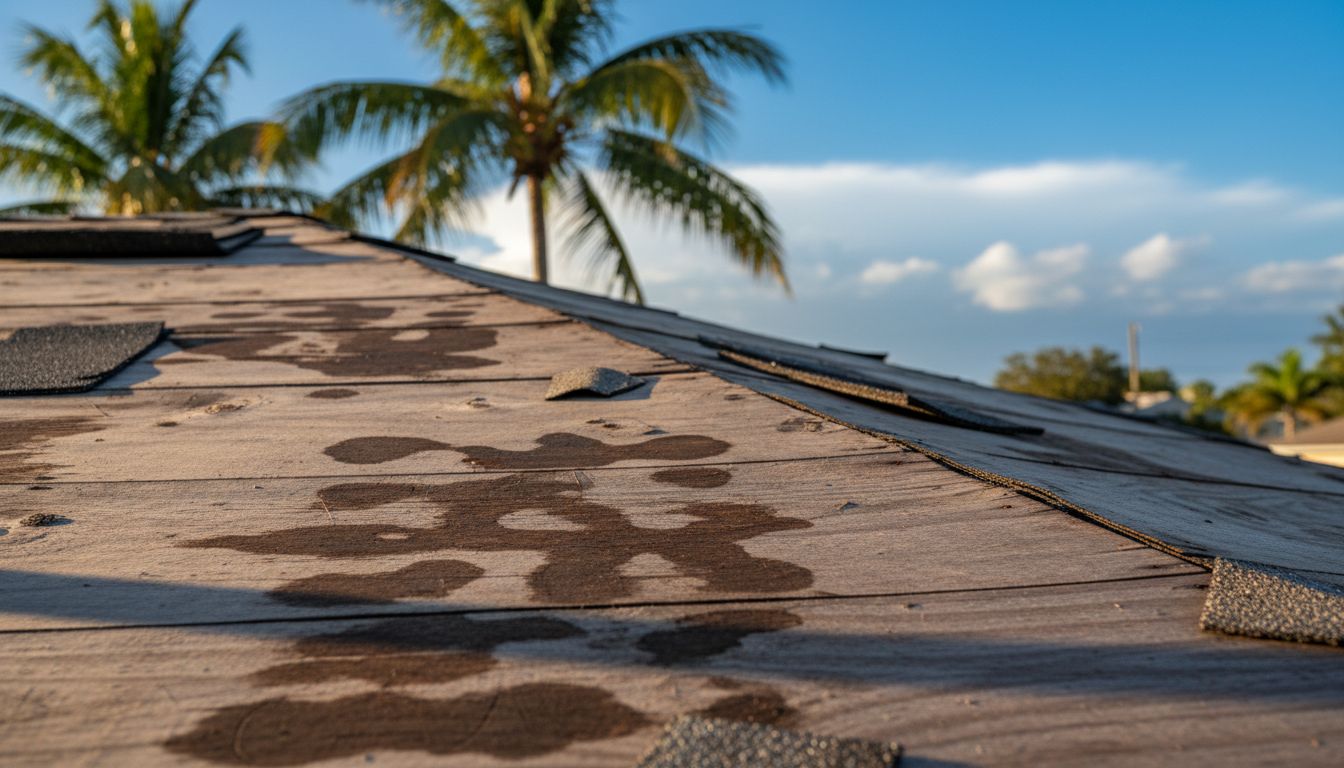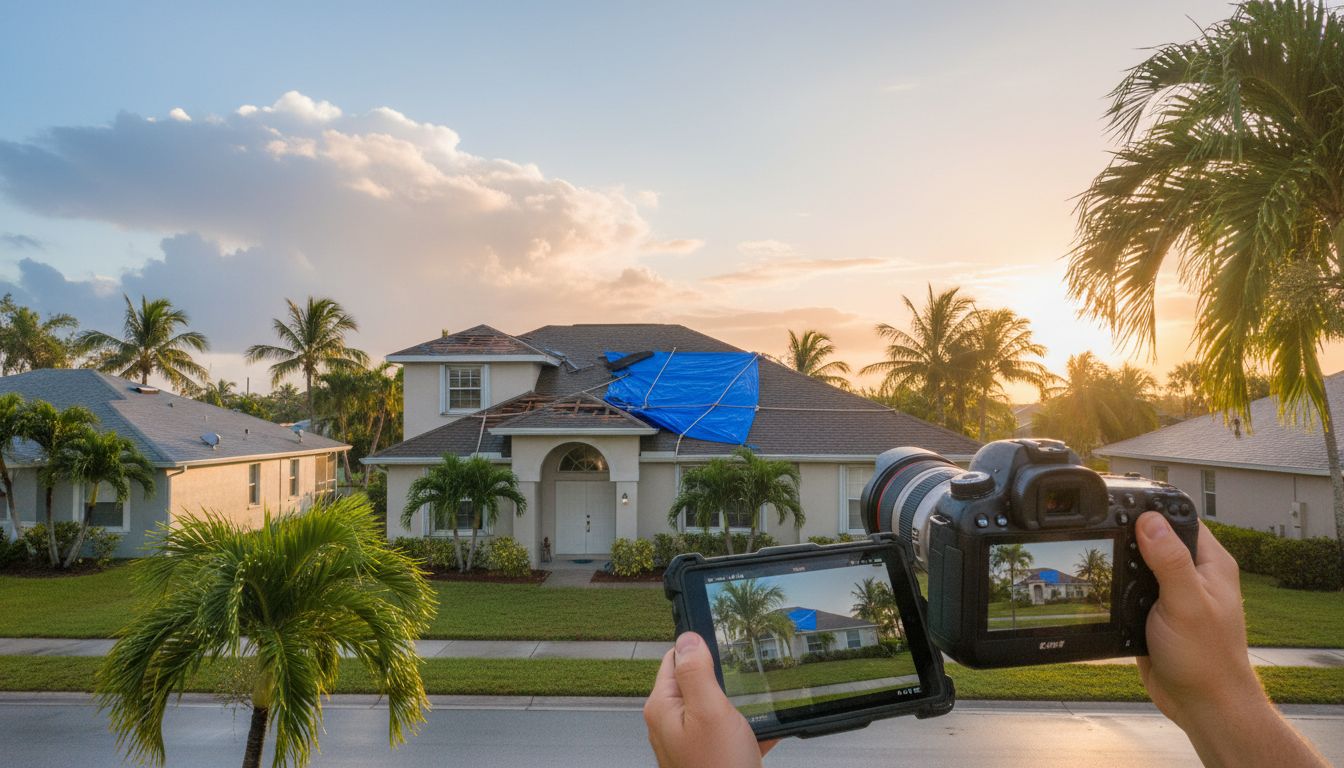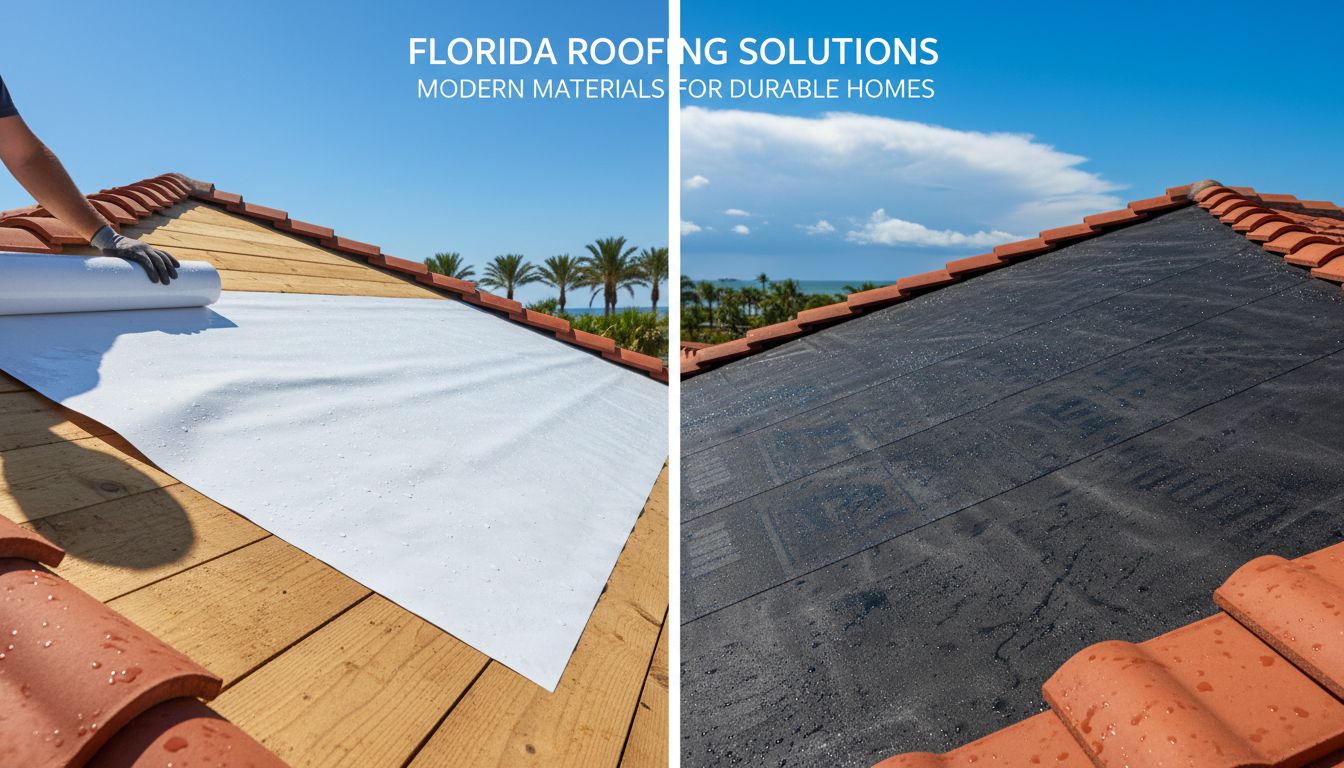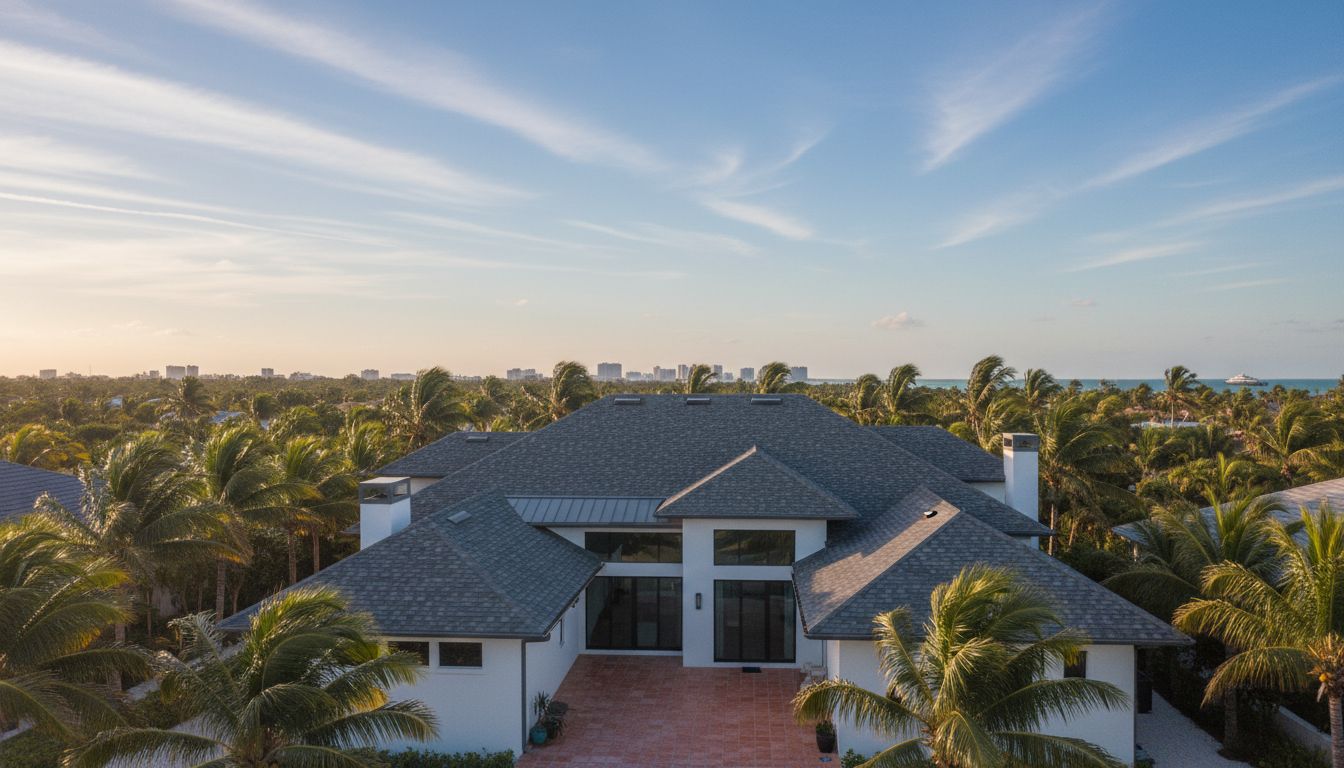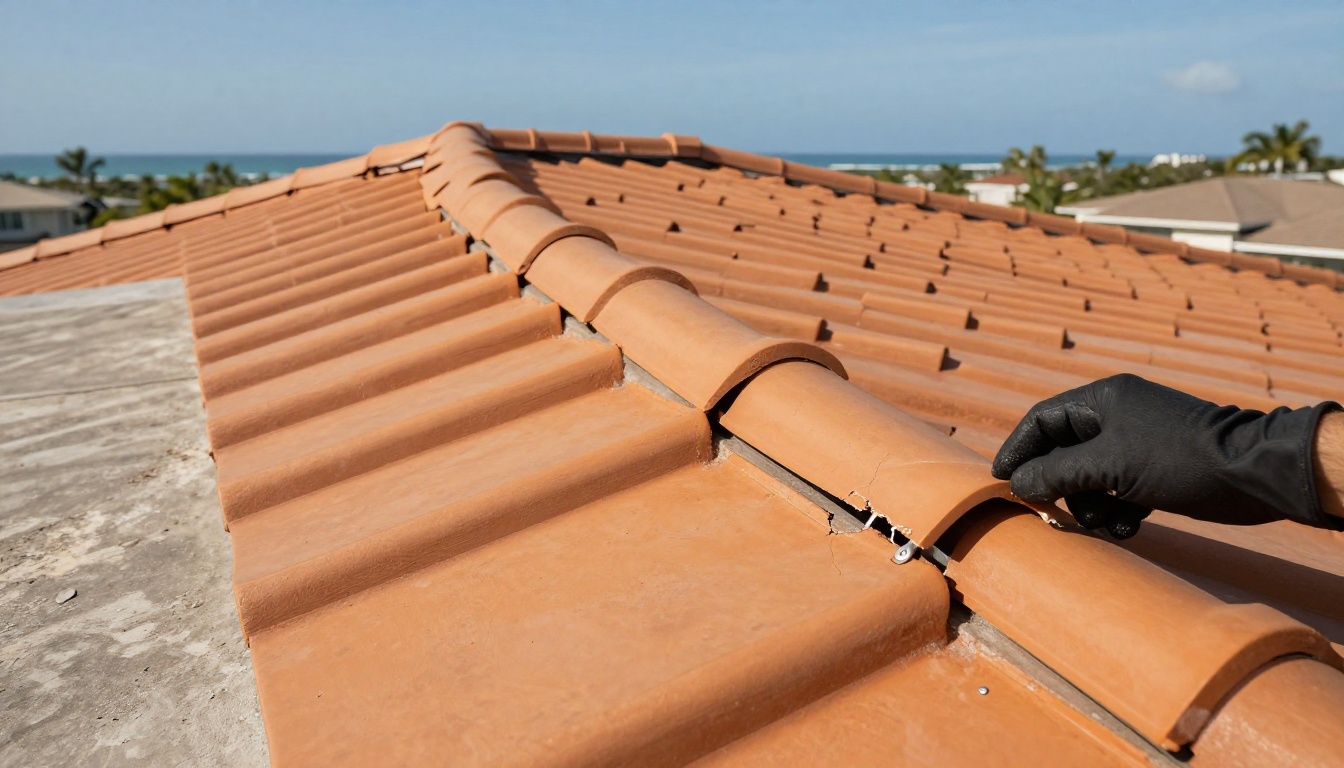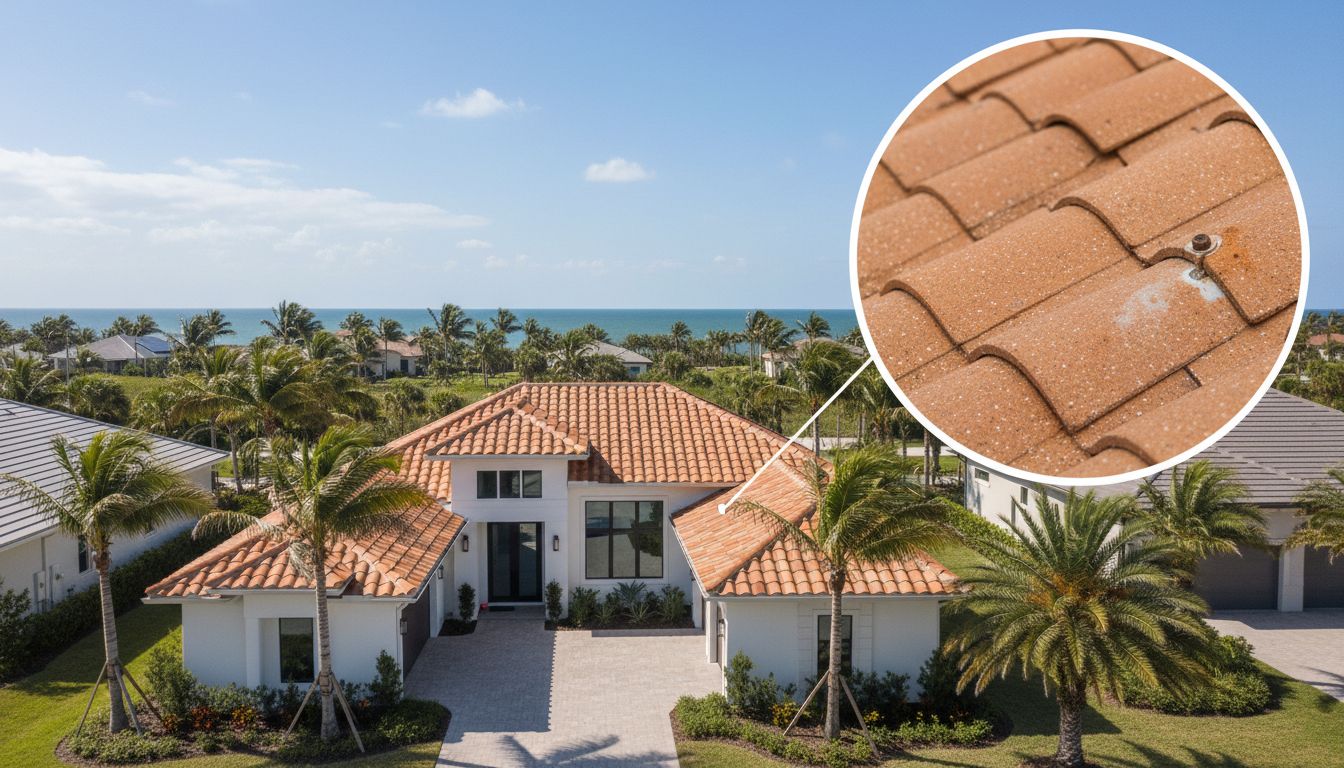Tile Roofing: A Timeless Option for Southwest Florida Homes

The Unique Appeal of Tile Roofing in Southwest Florida
Tile roofing has long been a hallmark of Southwest Florida homes, and for good reason. Its timeless aesthetic appeal, combined with its practicality, makes it a popular choice for homeowners in the region. The distinctive look of tile roofing, often associated with Mediterranean and Spanish-inspired designs, perfectly complements the architectural styles prevalent in Southwest Florida. From stucco exteriors to arched windows and terracotta hues, tile roofs enhance the visual harmony of these homes, creating a cohesive and elegant appearance.
Beyond its beauty, tile roofing is incredibly well-suited to the region's climate. Southwest Florida is known for its intense sun, high humidity, and frequent rainstorms, especially during hurricane season. Tile roofs are designed to withstand these conditions, offering a level of durability and resilience that few other materials can match. Their ability to reflect sunlight and resist heat absorption also makes them a practical choice for the area's hot and humid environment. For homeowners seeking a roofing option that combines style, functionality, and longevity, tile roofing is an ideal solution.
Durability and Longevity: Why Tile Roofing Stands the Test of Time
One of the most compelling reasons to choose tile roofing is its exceptional durability and longevity. While asphalt shingles typically last 20 to 30 years, tile roofs can endure for 50 years or more with proper maintenance. In fact, some clay and concrete tile roofs have been known to last over a century, making them a true long-term investment for homeowners.
Tile roofing is particularly well-suited to Southwest Florida's harsh weather conditions. The region's intense sun can cause other roofing materials to warp, crack, or fade over time, but tile roofs are highly resistant to UV damage. Additionally, their weight and interlocking design make them capable of withstanding high winds, a critical feature during hurricane season. Tile roofs are also impervious to fire, rot, and insect damage, further enhancing their durability and reducing the need for frequent repairs.
Another advantage of tile roofing is its low-maintenance nature. Unlike wood or asphalt shingles, which may require regular treatments or replacements, tile roofs are designed to endure with minimal upkeep. This durability not only saves homeowners money in the long run but also provides peace of mind, knowing their roof can handle whatever Mother Nature throws its way.
Energy Efficiency and Environmental Benefits of Tile Roofing
In addition to its durability, tile roofing offers significant energy efficiency and environmental benefits, making it a smart choice for eco-conscious homeowners in Southwest Florida. One of the key advantages of tile roofing is its natural insulation properties. The air pockets within the tiles create a thermal barrier that helps regulate indoor temperatures, keeping homes cooler in the summer and reducing the need for air conditioning. This can lead to substantial energy savings, especially in a region where cooling costs can be a major expense.
Tile roofs are also highly reflective, particularly when coated with light-colored or reflective finishes. This ability to reflect sunlight further enhances their energy efficiency, as less heat is absorbed into the home. Over time, these energy savings can offset the initial cost of installation, making tile roofing a cost-effective option in the long run.
From an environmental perspective, tile roofing is a sustainable choice. Most tiles are made from natural materials like clay or concrete, which are abundant and recyclable. At the end of their lifespan, tiles can be repurposed or recycled, reducing waste and minimizing their environmental impact. Additionally, the longevity of tile roofs means fewer materials are needed for replacements, further contributing to their eco-friendliness.
Types of Tile Roofing: Choosing the Right Style for Your Home
When it comes to tile roofing, homeowners have several options to choose from, each with its own unique characteristics. The three most common types of tile roofing are clay, concrete, and slate, and understanding their differences can help you select the best option for your home.
-
Clay Tiles : Known for their classic terracotta appearance, clay tiles are a popular choice for Mediterranean and Spanish-style homes. They are lightweight, highly durable, and resistant to fading, making them an excellent long-term investment. However, clay tiles tend to be more expensive than other options.
-
Concrete Tiles : Concrete tiles are a versatile and cost-effective alternative to clay. They can be manufactured in a variety of colors and styles, allowing homeowners to achieve the look of clay or slate at a lower price point. While slightly heavier than clay, concrete tiles are equally durable and can withstand harsh weather conditions.
-
Slate Tiles : For those seeking a luxurious and natural look, slate tiles are an excellent choice. Made from natural stone, slate tiles are incredibly durable and can last over a century. However, they are the heaviest and most expensive option, requiring a strong roof structure and a higher upfront investment.
When choosing a tile roofing style, consider factors such as your home's architectural design, your budget, and the weight capacity of your roof structure. Consulting with a professional roofing contractor can help you make an informed decision that meets your needs and enhances your home's curb appeal.
Installation Considerations for Tile Roofing in Southwest Florida
Proper installation is critical to the performance and longevity of a tile roof, especially in a region like Southwest Florida. Due to the weight of tile roofing materials, a strong and well-constructed roof structure is essential. Homes with older or weaker roof frames may require reinforcement before installation, which can add to the overall cost but ensures the roof's stability and safety.
Another important consideration is the expertise of the roofing contractor. Tile roofing installation is a specialized skill that requires precision and experience. Improper installation can lead to issues such as leaks, loose tiles, or reduced durability, so it's crucial to hire a licensed and reputable contractor with a proven track record in tile roofing.
In Southwest Florida, where hurricanes and heavy rains are common, additional measures may be needed to secure the tiles and prevent damage. This includes using high-quality underlayment, proper fastening techniques, and ensuring adequate drainage to prevent water buildup. By investing in professional installation, homeowners can maximize the benefits of their tile roof and enjoy peace of mind knowing their home is well-protected.
Maintenance Tips to Extend the Life of Your Tile Roof
While tile roofs are low-maintenance, regular care is essential to ensure their longevity and performance. One of the most important maintenance tasks is conducting routine inspections to identify and address any issues early. Look for cracked or broken tiles, which can allow water to seep through and cause damage to the underlying structure.
Cleaning your tile roof is another key aspect of maintenance. Over time, dirt, debris, and moss can accumulate on the tiles, affecting their appearance and functionality. Use a soft brush or low-pressure washer to clean the surface, taking care not to damage the tiles. Avoid harsh chemicals, as they can degrade the material.
If you notice any issues, such as loose tiles or leaks, address them promptly to prevent further damage. While minor repairs can often be handled by homeowners, more complex issues should be left to professionals. Regular professional maintenance, including inspections and repairs, can help extend the life of your tile roof and protect your investment.
Cost vs. Value: Is Tile Roofing Worth the Investment?
Tile roofing is undoubtedly one of the more expensive roofing options, with higher upfront costs compared to materials like asphalt shingles. However, its long-term value makes it a worthwhile investment for many homeowners. The durability and longevity of tile roofs mean fewer replacements and repairs over time, resulting in significant cost savings.
Additionally, the energy efficiency of tile roofing can lead to lower utility bills, further offsetting the initial expense. Homeowners may also see an increase in their property's resale value, as tile roofs are often viewed as a premium feature that enhances curb appeal and durability.
For those concerned about the upfront cost, financing options and incentives may be available. Some local programs in Southwest Florida offer rebates or tax credits for energy-efficient home improvements, including tile roofing. By exploring these options, homeowners can make tile roofing a more accessible and affordable choice.
Why Tile Roofing is Perfect for Southwest Florida Homes
Tile roofing offers a unique combination of beauty, durability, and practicality, making it an ideal choice for Southwest Florida homes. Its timeless appeal enhances the region's architectural styles, while its ability to withstand harsh weather conditions ensures long-lasting performance. With energy efficiency and environmental benefits to boot, tile roofing is a smart investment that provides value for years to come.
For homeowners in Southwest Florida, tile roofing is more than just a functional necessity—it's a statement of style and quality. By choosing tile roofing, you're not only protecting your home but also enhancing its beauty and value, making it a decision you can feel confident about.
